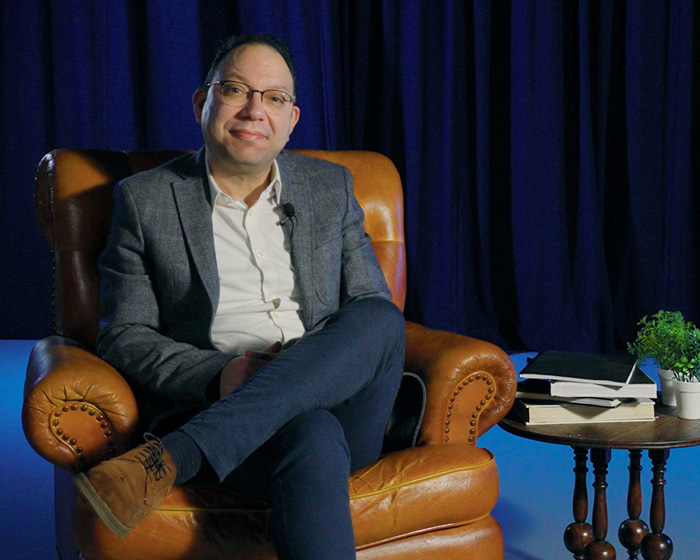Why Choose Lincoln
Take part in live consultancy projects
Undertake intensive negotiation training
Membership of LIBS Connect for business networking
Benefit from research-active academics
Complete a dissertation in a specialist area

Brayford Pool
September 2025 and January 2026
1 year
The Lincoln International Business School MBA programme is based on the core values of sustainability and responsible management. Our programme aims to provide the knowledge, perspective, and critical understanding that managers and professionals may need to succeed in a rapidly changing world.
The programme is designed to suit managers and professionals from across business, government, and civil society, and may appeal to those who not only want to achieve success for themselves and their organisations, but also have a passion for making the world a better place. The curriculum addresses real-world challenges, such as the transition to a zero-carbon economy and technological changes like Industry 4.0, and provides a creative environment for generating new knowledge and practical solutions.
Students can benefit from research-active academics who are able to enrich the programme with the latest thinking around the current issues and challenges faced by organisational decision-makers.
Take part in live consultancy projects
Undertake intensive negotiation training
Membership of LIBS Connect for business networking
Benefit from research-active academics
Complete a dissertation in a specialist area

The Lincoln International Business School MBA programme aims to connect classroom learning with the real world challenges faced by managers and organisations. The content of the programme is designed to build the skills every global manager needs, whilst individual projects and the dissertation provide an opportunity to specialise.
Lectures and seminars are designed to enable interaction and dialogue and offer the chance to discuss the fundamentals of global business and leadership. There is flexibility in the scheduling of our timetable that allows class activities, as well as group and independent study.
MBA study involves a significant proportion of independent study, exploring the material covered in lectures and seminars. As a general guide, for every hour in class students are expected to spend two to three hours in independent study. Taught modules normally have 36 contact hours (lectures, seminars and workshops) per term.
Indulge your curiosity and get a taste of what studying at Lincoln could be like with our Meet the Master’s lecture series. Our expert academics are delivering bitesize lectures on a range of topics, introducing you to some of the concepts and ideas you could explore during your Master's degree.

This module equips students with the skills and knowledge to thrive as entrepreneurial leaders in dynamic, global environments. This module integrates theoretical frameworks and practical approaches to entrepreneurship, intrapreneurship, and innovation, enabling students to critically evaluate strategic opportunities and drive sustainable growth.
Students will explore the principles of entrepreneurial practice and entrepreneurial leadership within diverse organisational contexts, examining how innovation creates competitive advantage. The module highlights the strategic alignment of entrepreneurship with organisational goals, emphasising ethical considerations, sustainability, and responsible leadership. Topics include entrepreneurial thinking and mindset, ecosystems, business model design, intrapreneurial structures, innovation, business case development, ensuring students can lead innovation effectively.
By the end of this module, students will have mastered critical tools for fostering entrepreneurial thinking, aligning innovation strategies with organisational objectives, and navigating the complexities of modern business environments, positioning them for impactful leadership in their careers.
The Independent Project (Pathways) module enables you to undertake a substantive project in the context of your chosen degree specialism, and within the Lincoln International Business School’s commitment to sustainable and responsible management practice. The aim of the module is to clearly illustrate your ability to synthesise the different business domains and management perspectives studied during your course and apply them through an independent project. You can engage with contemporary business and research themes as you explore innovative and creative ways to complete their chosen pathway.
This module is designed to provide students with an understanding of the key principles of financial management and how to apply and critically evaluate those principles for strategic decision-making purposes. Managerial Finance covers a wide range of topics on financial decision-making, focusing on investment decisions, financial planning, capital structure, cost of capital, and the application of management accounting principles. The understanding of these elements is critical for business managers who must make informed decisions in the context of real-world application. The module begins by introducing the importance of financial statements and developing understanding of the key information presented within the financial statements. The students will then analyse that financial information contained within the financial statements for decision-making purposes by applying financial analytics tools such as ratios, common size, horizontal and vertical financial analysis. As part of the management roles, managers are required to make key investment and financing decisions that impacts long-term sustainability of the business and the shareholder’s wealth. The module will then build key analytical skills within students that will help them in applying investment appraisal techniques to evaluate long-term investment decisions. Similarly, students will learn about the different sources of finance that companies can employ to fulfil their financing needs in addition to evaluating the cost of raising those funds. Finally, students will learn the application of management accounting tools that aid managers and businesses for planning business activities, controlling costs and measuring performance, and for decision-making purposes. For that matter, the students will explore the application of pricing decisions, cost management, and perform cost-volume-profit analysis. The module emphasizes the practical application of financial theories and tools, helping students bridge the gap between theoretical knowledge and real-world decision-making. Throughout the module, students will be challenged to think critically about how financial decisions influence business strategy, and how managers can use financial analysis to drive business success. This course not only focuses on the core technical aspects of finance but also highlights the importance of aligning financial decisions with broader corporate strategies and stakeholder interests. The module will necessitate the use of Bloomberg terminal as a compulsory element of the module which will help achieve the Skills for Life outcome of Creativity – Digital & Data Literacy.
People and their interactions are at the heart of leadership and management in organisational life. Recognising and incorporating a range of factors into management practice, from personal traits to dynamic organisational environments, is essential for achieving combined positive organisational and individual outcomes.
This module aims to develop insights across these areas by working with students to explore and reflect on their experiences of work and cultures. Their knowledge of organisational theory will be developed and used to reflect on the past, applied to present cases and inform future evidence-based approaches. It is designed to complement and balance other programme modules by providing the opportunity for students to explore behavioural aspects of managing people, and themselves, in organisational life. Graduates of this course will confidently apply evidence-based approaches for positive impact on their people and organisations.
The module will delve into both macro and micro organisational factors, examining how larger systemic issues, individual factors and team dynamics influence management practices. A practical focus on managing people will be emphasised, highlighting the importance of development and leadership in optimising performance. This module aims to produce enhanced understanding which will nurture lateral thinking, problem solving and reflective practice. Additionally, the module will highlight and discuss the significance of self-awareness and well-being, ensuring that managers are equipped to foster a healthy and productive work environment.
This module aims to inform the critical decisions that need to be taken by business leaders when taking their organisation’s products and services to market, because such decisions directly impact on profitability and shareholder value. The module introduces marketing management to students whose previous studies and current occupations may be very diverse and emphasises the need for a critical and analytical perspective. Students will be introduced to analytical tools, customer behaviour theory and international marketing factors.
Negotiations are an essential and fundamental moment in the life of individuals, organisations, institutions, and firms. The module will typically examine the links among negotiation fundamentals, negotiation sub-processes and negotiation contexts. The module will support students in developing their negotiation skills through a review of theories, models and practical exercises.
This module is designed to augment and to support the challenges of strategic management by encouraging and enabling students to develop the intellectual and professional acumen needed for the conception and analysis of responsible business strategies; to make appropriate choices between strategic options, and then to follow a strategic trajectory that will deliver results that are robust, ethically sound and socially responsible.
A range of illustrative strategic issues, generally recognised as fundamental to organisational success are used to identify and explore the tensions and paradoxes of organisational life. The developing debate demonstrates that often opposing perspectives can give valid, but only partial, contributions to understanding key strategic issues. To best assist the effective management of contemporary organisations, the ability to set direction in a turbulent environment needs to developed by seeking set of options that are most appropriate to the organisational context being considered
It is evident that to be successful in the global environment future organisations will need to be both viable in a commercial sense and at the same time either demonstrate a responsible attitude towards wider society that encompasses the full community of stakeholders or be subject to ever more restrictive regulation. Accordingly, to meet this requirement while avoiding stricter regulation, there is a need for senior managers and those who aspire to that status to have a longer term and more responsible view of the business enterprise rather than simply aiming for short-term profit maximisation.
This module prepares you to undertake a substantial independent project. It introduces you to the core principles of research design and methods you are likely to encounter during independent study. The module seeks to develop your competency and confidence in research methodology to a Master's level.
In the global contemporary setting, ethical and sustainable practice are a key focus within all aspects of business and in particular the responsible approach and management of the supply chain network. The Chartered Institute of Procurement and Supply recognise that the global supply chain sector has a moral obligation to do better in the fight against modern slavery, intolerable working conditions as well as bribery and corruption. Equally, the supply network of organisations is estimated to be responsible for as much as 90% of harmful emissions that are damaging our planet. As such, supply chain activities are identified as a primary concern in the global pursuit to reduce greenhouse gas and many other damaging emissions to decrease the negative impact of climate change and human activity. Therefore, responsible supply chain strategy is gaining direct attention and is recognised as a major evolving challenge for many organisations as they strive to meet their moral, legal, and humanistic aspirations and targets to ensure a prosperous future for all and as such, organisational recognition as a responsible global citizen.
† Some courses may offer optional modules. The availability of optional modules may vary from year to year and will be subject to minimum student numbers being achieved. This means that the availability of specific optional modules cannot be guaranteed. Optional module selection may also be affected by staff availability.
We want you to have all the information you need to make an informed decision on where and what you want to study. In addition to the information provided on this course page, our What You Need to Know page offers explanations on key topics including programme validation/revalidation, additional costs, and contact hours.
This course provides you with the opportunity to develop an understanding of a specific topic in lectures and seminars before presenting your findings and opinions on given questions at the end of each module.
All taught modules will be assessed through a variety of assessment methods, including essays, examinations, projects, oral presentations and simulation games. These assessments are designed to develop skills that can be useful for your career.
For the MBA Dissertation, students will have the opportunity to produce a research-focused dissertation of 15,000 words.
The University of Lincoln's policy on assessment feedback aims to ensure that academics will return in-course assessments to you promptly - usually within 15 working days after the submission date.
Academics from our MBA are involved in the Lincoln International Business School’s Responsible Management Research Group, which undertakes research which contributes new knowledge so that business, as a primary driver of globalisation, can help ensure that management, businesses, markets, commerce, technology, and finance advance in ways that benefit economies and societies everywhere.

Top 10
The University of Lincoln is ranked in the top 10 universities in the UK for enabling start-up businesses (Higher Education Statistics Agency, 2025)
Through membership of LIBS Connect, students will be able to attend guest lectures from industry speakers and leaders. Previous guest speakers have included University Chancellor Lord Adebowale CBE, BBC Trustee and Non-Executive Director Suzanna Taverne, and the Chief Executive of Siemens pcl Juergen Maier.
Postgraduate Application Support
Applying for a postgraduate programme at Lincoln is easy. Find out more about the application process and what you'll need to complete on our How to Apply page. Here, you'll also be able to find out more about the entry requirements we accept and how to contact us for dedicated support during the process.

A minimum 2:2 honours degree and at least 2 years of work experience.
In addition, students whose first language is not English are required to have an English Language qualification of IELTS 6.0 or equivalent.
For information about our English Language Centre, including pre-sessional courses and in-sessional support, please visit:
https://www.lincoln.ac.uk/studywithus/internationalstudents/englishlanguagerequirementsandsupport/
You will need to have funding in place for your studies before you arrive at the University. Our fees vary depending on the course, mode of study, and whether you are a UK or international student. You can view the breakdown of fees for this programme below.
The University offers a range of merit-based, subject-specific, and country-focused scholarships for UK and international students. To help support students from outside of the UK, we offer a number of international scholarships which range from £1,000 up to the value of 50 per cent of tuition fees. For full details and information about eligibility, visit our scholarships and bursaries pages.
Postgraduate Funding Options
Find out more about the optional available to support your postgraduate study, from Master's Loans to scholarship opportunities. You can also find out more about how to pay your fees and access support from our helpful advisors.

This course aims to develop essential managerial skills with entrepreneurial value, critical in becoming a successful leader in the modern business world.
Students have the opportunity to access a large business network through a variety of activities. LIBS Connect membership provides students with access to a series of business networking events, where they can engage with the local business community.
For more information about this course, please contact the Programme Leaders.
Dr Wajdi Ben Rejeb
WBenRejeb@lincoln.ac.uk
Dr Mohammad Fakhar Manesh
MFakharManesh@lincoln.ac.uk
Lincoln International Business School works with students and organisations to enhance the contribution of business to society. For students, that means developing their business skills and knowledge to improve their career readiness.The University of Lincoln is a member of AACSB, a global nonprofit association connecting educators, students, and businesses to achieve a common goal: to create the next generation of great leaders.

To get a real feel for what it is like to study at the University of Lincoln, we hold a number of dedicated postgraduate events and activities throughout the year for you to take part in.
